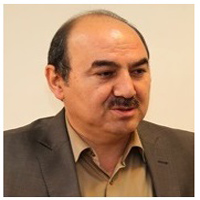The effect of meta-cognitive and drug therapies on meta-cognitive beliefs of disease with obsessive-compulsive disorder
Author(s):
Abstract:
Introduction
The aim of the present research was to determine the effect of meta-cognitive and drug therapies on meta-cognitive beliefs of patients with obsessive-compulsive disorder. Method
The sample consisted of 60 subjects selected from patients with obsessive-compulsive disorder in Ardabil City., The subjects were randomly assigned to two experimental groups and a control group. The two techniques used were drug therapy and meta-cognitive therapy. To collect data of Psychological Interview, Meta-cognition Questionnaire and obsessive-compulsive Inventory were used in two stages. Data were analyzed using multivariate analysis of variance. Results
The results showed significant differences between therapeutic groups and control group in variables of meta-cognitive beliefs and obsessive symptoms. Multi- comparison tests revealed that meta-cognitive therapy was more effective in reducing symptoms than drug therapy. Also, meta-cognitive therapy was found to be more effective in modifying dysfunctional meta-cognitive beliefs than drug therapy. Conclusion
The results provided support for the role of meta-cognitive therapy in reducing obsessive symptoms and modifying dysfunctional meta-cognitive beliefs.Language:
Persian
Published:
International Journal of Behavioral Sciences, Volume:4 Issue: 4, 2011
Page:
305
https://magiran.com/p819784
مقالات دیگری از این نویسنده (گان)
-
The effectiveness of a combined weight loss program on cravings and anthropometric indicators in women with obesity
Seyed Mohsen Nemati, *, Parviz Porzoor, Sajjad Basharpoor, Ghasem Fattahzade
Journal of Research in Behavioural Sciences, -
The effectiveness of the educational package to reduce academic burnout on reducing psychological distress and promoting the academic achievement of girl high school students.
Sodabeh Rafigh Irani, *, Asghar Nakhostin Goldoost
Journal of School Psychology,


